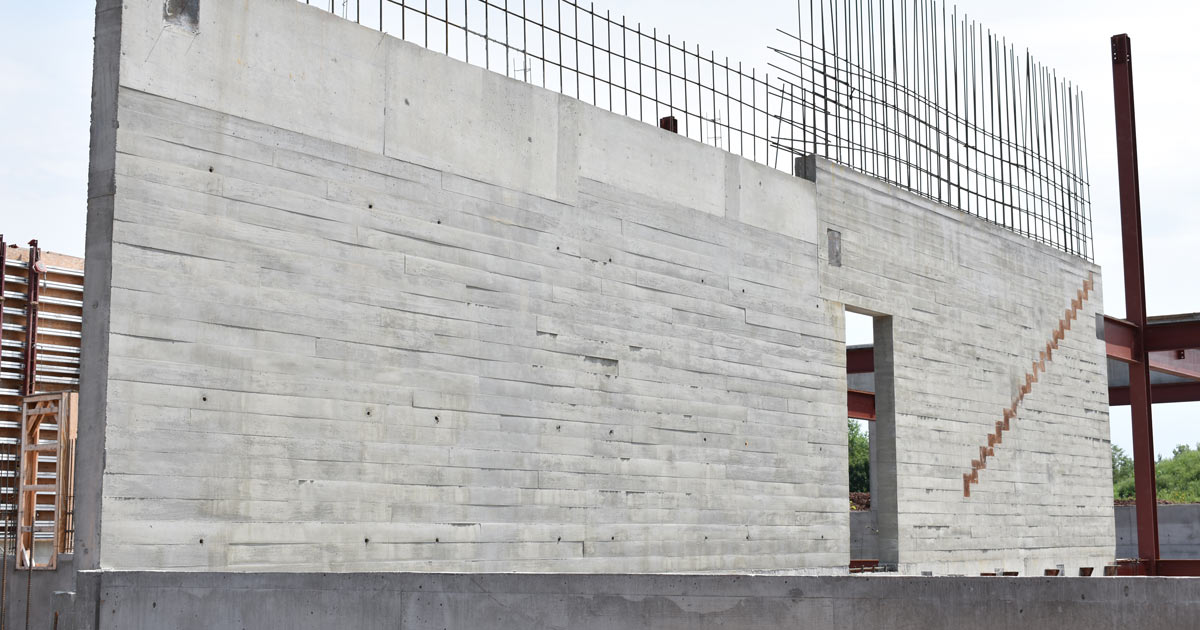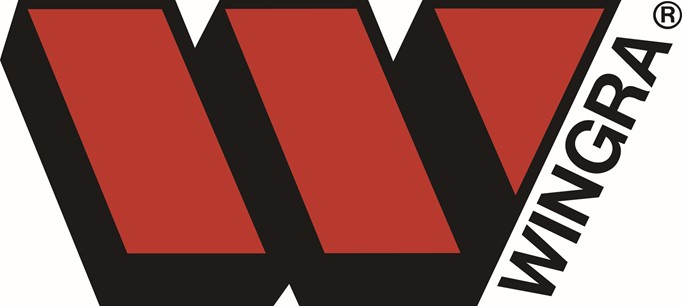Solid Concrete Foundation Walls
BEYOND THE RHETORIC:
SOLID CONCRETE FOUNDATION WALLS ARE BEST – By Phill Domask, *CME
No apologies: I am a *Construction Materials Evangelist for Wisconsin’s ready-mixed concrete industry and favor ready-mixed concrete for most construction applications.
But I believe when you get beyond the rhetoric of competing foundation wall systems, solid concrete foundation walls are best.
Many Foundation Options
Wisconsin consumers and their architects and builders can choose from a number of foundation options. In the late 1970s and early 1980s, wood basements gained popularity, reaching a national high in 1982 in terms of new home construction starts before consumer and builder concerns about the poor fire wall ratings, poor construction techniques, rodent, termite, and fungi damage, and the possible toxic effects of arsenic and other preservatives used with wood foundation systems led to a decline in popularity.
In the late 1980s, solid concrete foundations installed using insulating concrete forming technology (stay-in-place, expanded polystyrene forms … known today as ICFs) were introduced in Wisconsin, providing energy-savings through high insulation values, for basements used as additional living areas.
In the mid-1990s, pre-cast concrete foundation walls entered the Wisconsin construction marketplace, promising higher quality through factory-controlled construction methods.
But the foundation systems most often compared and debated in Wisconsin for new home construction are hollow core masonry block basements (block) and solid concrete foundation walls (concrete).
Block vs. Concrete
There are a number of similarities between these competing foundation systems, and many of the features and benefits used to market the two systems are nearly identical.
Both foundation systems tout low maintenance. Both foundation systems are fire resistant. Both foundation systems are constructed by quality craftsmen and craftswomen. Both foundation systems are produced locally, using local materials and labor. Both foundation systems can be customized to produce decorative effects. Both foundation systems can be customized to provide additional insulation values. Both foundation systems are affordable.
Foundation walls serve three functions. Foundation walls support the above-ground structure, retain the soil surrounding the foundation area, and frame economical additional storage and living space. Keeping these functions in mind, and getting beyond the rhetoric, solid concrete foundation walls outperform hollow core masonry block basements in four areas Wisconsin consumers and construction professionals should strongly consider:
• Strength
• Speed of construction
• Construction on “marginal lands”
• Year-round construction.
Solid Concrete Foundation Walls are Stronger
Solid concrete foundation walls are stronger than hollow core masonry basement walls. Engineering tests and technical data confirm solid concrete foundation walls have ultimate flexural strengths many times greater than block walls, providing superior resistance to the pressures of earth, wind, and water. Solid concrete foundation walls also have ultimate compressive strengths many times greater than block walls, providing superior support to vertical structure loads.
How much greater? International building codes require hollow core masonry basement walls to be reinforced with vertical steel when holding back unbalanced fill materials, if the fill exceeds three-foot, nine-inches (3.75-feet) above the basement floor. In contrast, non-reinforced solid concrete foundation walls exceed international building code standards for full-height fill, by a large safety margin. Consumers get 40% more concrete, dollar for dollar, in a solid concrete foundation wall vs. a block foundation wall. More concrete means a stronger, denser foundation with fewer pores or seams for water to seep through, and less callbacks for construction professionals.
[Trivia Note: The quickest way to end a conversation with telemarketers for basement repair construction services is to tell them you have a solid concrete foundation wall.]
Solid Concrete Foundation Walls Feature Speed of Construction
Solid concrete foundation walls take less time to construct than hollow core masonry basement walls. Time is money: The quicker your builder can begin roughing in, the lower the final cost of the structure will be.
Solid Concrete Foundation Walls Bridge Soft Zones on Marginal Lands
Solid concrete foundation walls provide the structural integrity required to bridge “soft” zones on “marginal” lands, saving consumers and construction professionals time and money when construction takes place on sites with poor soil conditions.
Solid Concrete Foundation Walls Enable Year-Round Construction
Technical advances in ready-mix production provide quality control for solid concrete foundation walls installed in inclement weather or freezing temperatures. Year-round construction gets consumers into their new homes faster, expedites builder backlogs, and allows construction professionals to get a jump on new business opportunities.
Solid Concrete Foundation Walls Dominate Wisconsin & National Homebuilding Markets
Still not convinced solid concrete foundation walls are best? Statistics collected by the State of Wisconsin and a national survey conducted by the Portland Cement Association (PCA), a national association of cement producers who support both the hollow core masonry and ready-mix industries, show solid concrete foundation walls dominate Wisconsin and national homebuilding markets, with market share exceeding 70%. A quote from the PCA survey follows:
Solid concrete foundation walls dominate the national market, with 72% of new homes with full basements choosing solid concrete foundation wall systems.
Concrete block holds 25% of this national market.
Building permit information collected by the State of Wisconsin shows consumers across the state track with the national foundation market.
Beyond the Rhetoric
Marketing rhetoric aside, solid concrete foundation walls are best because they are stronger, go in quicker, can be built on marginal lands, and can be constructed year-round. Nationally and in Wisconsin, seven out of ten consumers choose to build new homes on solid concrete foundation walls.
You should, too.





